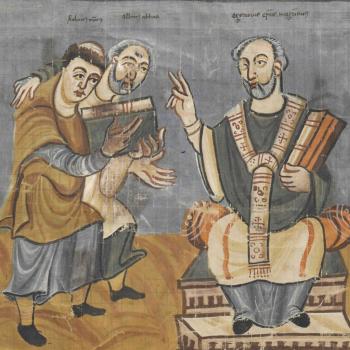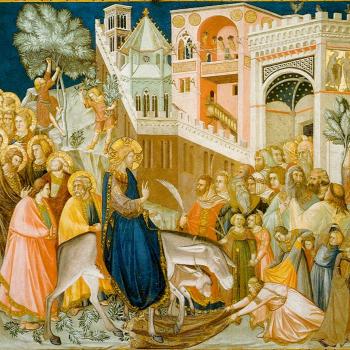History never looks like history when you are living through it.
John W. Gardner
I have just completed a book titled Rethinking a Nation: The United States in the 21st Century. Yes, that’s 21st, not 20th. The whole project raises some interesting questions about just what history is, how we define it, and how we separate it from (for instance) journalism or political science. This has important implications for how we define and study contemporary religious history, the kind of endeavor that concerns most of us at the Anxious Bench.
What a historian has to do, of course, is to rise above simple reportage to supply broad themes and identify key trends by which the larger story can be told. Often, that means making unsuspected connections between different forms of study – social and economic, political and technological, cultural and sexual.
But writing any history of “Only Yesterday” has potential pitfalls, as it can be difficult to rise above strictly contemporary concerns and obsessions to arrive at a balanced long-term perspective. When today we write the history of the 1850s or the 1950s (say) we know exactly the topics and individuals that demand to be covered, so that to some extent our narrative framework is pre-set. We know where the story is going, and the script is already written. That is simply not the case for the most recent era, where we rely on our individual judgments to determine the critical trends, and the most significant events. In a sense, I really am making it up as I go. Not, I hope, in a bad way.
To take an example, you can look at any news source to study the events of the past five years or so, but here is a suggestion for a way of organizing the narrative. I would argue that the upsurge of wide-ranging activism since the mid-2010s – in matters of race, gender, sexuality, and environmental concern – makes that era comparable to that of earlier eras like the 1840s, or the mid-1910s, or (most famously) the 1960s. Indeed, many of the insurgent movements and causes that we associate most strongly with the 1960s and with “60s-ism” reached full fruition in these past few years. Arguably, the rethinking and re-evaluation of American history over the past five years has been far greater than anything done in the 1960s. Future historians, I believe, will recall the 2010s as a transformative decade of upheaval. If this is true, then we can usefully compare that era with the 1960s, to study the similarities and contrasts.
A historian can also point to the extraordinary pace of change, which gets lost if you are just reporting one thing after another. Josef Stalin once remarked that quantity has a quality of its own, but so in its way does speed. How rapidly trends and movements occur profoundly affects their impact on society, and the degree of disturbance and destabilization they cause. The impact of new technologies would have been enormous enough even if it had been spread over a much longer time period, as opposed to being compressed into twenty years or so. It is scarcely possible today to imagine how many of the electronic resources on which we rely as basic necessities were not available as recently as 2000. Imagine a world without social media, or even texting.
In terms of social attitudes, the near-overnight quality of change is exemplified by the idea of same sex marriage, with all that implies for concepts of the family and “normality.” Scarcely accepted even by most liberal opinion as late as 2000, “marriage equality” is today as standard and familiar a principle as racial equality, and as incontestable. In this as in much else, the extremists of 2000 are today the cultural mainstream, and vice versa. Social and cultural consciousness has changed beyond recognition.
Besides the word “revolution,” I often have occasion to describe how the “once unthinkable” came to be first tolerable, and then normal, and in such a breathlessly short time span. That is the definition of a true era of revolution.
So there are a couple of contributions that I think a historian can make to defining and comprehending a particular era – in fact, to understanding what gives this its unity as an era.
By the way, if the 2010s are too recent to be studied as history, could someone please tell me when history actually and properly starts? Does it need a cooling off period? How long should that be?

















